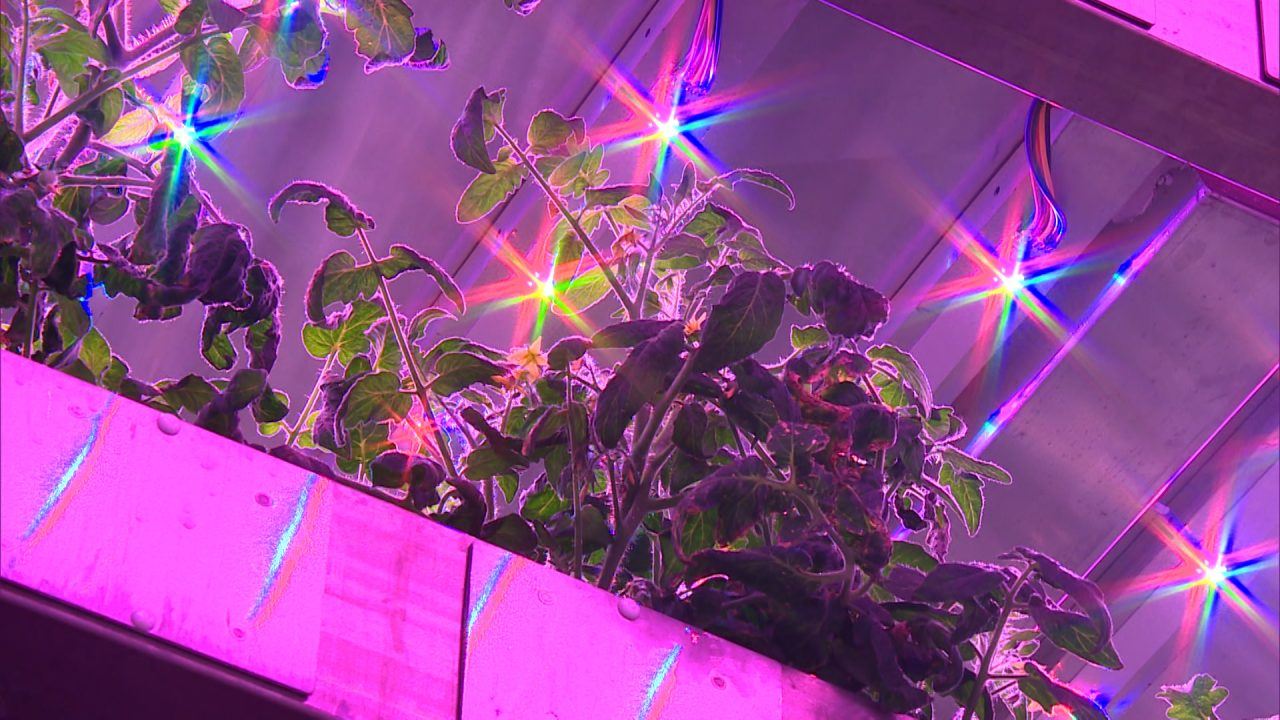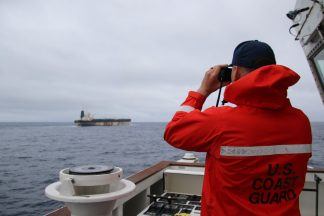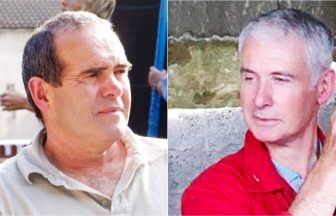A farm in north east Scotland is pioneering research into new ways of growing crops which it says could future-proof Scottish farming.
Intelligent Growth Solutions (IGS) is conducting research into vertical farming and says its growth towers could help avoid supermarket shortages of vegetables.
Trays of crops are stacked one on top of the other, each with its own climate created by the one above.
“If you think about farming you’re always at the behest of the weather,” said IGS CEO David Farquhar.
“Of course, using sunlight is a natural thing to do and an efficient thing to do but you cannot predict when you’re going to have it. In here our farmers are in total control of the weather.”
Light, temperature, relative humidity, water and nutrients are all precision controlled guaranteeing a high yield of high quality.
Unpredictable weather patterns caused by climate change make traditional agriculture increasingly challenging.
Last month was the hottest June on record in the UK.
In recent years Scottish farmers have been blighted by drought and flooding, leading to failed crops and price hikes.
Their indoor vertical farming infrastructure allows farmers to produce more than 200 different varieties of crops indoors.
Each tower is 40m² but has the same growing capability of one to two hectares of land.
“We can’t grow everything, but we can probably grow around a third of the plant based human diet,” Mr Farquhar said.
“We’re not going to solve world hunger and we’re not going to solve climate change on our own but we can make a serious contribution to both.”
The farm is fully automated creating a pesticide and disease-free environment.
IGS say compared to traditional methods, the towers use up to 50% less power, 80% less labour and 96% less water.
But Mr Farquhar says the concept is not designed to replace traditional farming.
And its small footprint means it can be built in both rural and urban settings, having the potential to drastically reduce the time needed for produce to go from farm to plate.
“We have a rapidly growing human population and all the impacts on climate. We need to replace imports of food. So, what we’re doing here is giving farmers a new tool whether they are growing in greenhouses or broadacre fields,” he said.
“What we’re trying to do is to collect as much data as possible using camera and other sensors to discover how the crop responds to different inputs so we can have a very positive impact on things like yield, cost, flavour, appearance and all the things a grower cares about.”
Follow STV News on WhatsApp
Scan the QR code on your mobile device for all the latest news from around the country




























